Regulations and compliance – meeting standards that matter
With systemic issues plaguing the industry, Emma Gillett, founder and CEO of SeaFeedback, raises a call for compliance to be held to a standard that must be met…
Regulatory and legal compliance will be the industry’s saviour
Regulations, codes and laws used to direct any profession are created for best practice, safe boundaries, to raise standards and to stop accidents, incidents, illegal actions and losses from arising. They are drawn up to drive an industry into its safest form and to remain within the laws that surround it, giving boundary and structure, a place where the buck stops. They are the guiding light, from candidate selection through education to the day-to-day running of a vessel, safety, build quality and design – and have an impact on every aspect of a profession.
And yet anecdotal conversations, backed by what meta data we have, concludes that regulation and its subsequent safeguarding are eyed as problems rather than solutions. We continue to find our regulatory and legal framework onerous, problematic and weighty, with Flags and management finding ways to circumvent them, for market share.
Professional compliance is not opt in, it’s mandatory. Non-compliance is actionable by Flag and port states. There is no legal defence in ‘We have no second shift’ or ‘The boss wanted …’ Cognisant that the complete negation of the regulations needs to be addressed, owners, crew and third parties are recognising the losses associated and are taking an interest.
According to a CHIRP report published this year, a maritime worker dies every 14 minutes – equivalent to two plane crashes a week – with 2024 proving horrendous for this industry.
It’s not unfathomable why we, as such a high resource industry, still growing and expanding, are so slow to appreciate the levels of loss that minimum standard and lack of compliance bring. It smacks of a real unwillingness on the part of those in positions of authority and current management to work within the regulatory and legal structures.
We would be better served if we used regulations to a yacht’s advantage
Insurance companies are now beginning to add consequences of non-compliance, declining new coverage, lack of available reinsurance, invalidating cover, voiding claims or pushing for immediate remedy or additional works and certifications. Liability to third-party exposure is being increased as is scrutiny around charter vessels with specific interest in safe manning levels and qualifications of crew (Superyachtforum).
The crew retention crisis continues, with the turnover of interior crew being a staggering 62 per cent and deck 26 per cent, according to a survey conducted by Superyachtcrewuk earlier this year.
We do ourselves no favours with special yacht rating, private vessel exemptions and minimum levels of practically every aspect of a yacht. Private vessels are no different from those that charter – and now with some Flags opening private yachts to the threat of more passengers without MLC in place or a direct look at crewing levels, it’s a recipe for more visible disasters.
The lack of ability for crew to speak freely in professional terms is exacerbating problems across the industry. It is the pinnacle of our problems and non-compliance continues to flourish, with financial, material, reputational and experiential losses.
Regulations elevate standards and draw upon all those associated with the industry to do so. They can push for the greatest safety, safeguarding, build quality and drive design, as well as the education and development of all those working on a vessel or in the industry, which is necessity for any profession. We could soon be looking at codes of ethics and conduct that elevate us from some abysmal practices and flouting of many countries’ laws surrounding yachts. Pushing to advance our industry regulation is still seen as a burden and a chore, something to be worked around at all costs, to benefit the owner. But no one benefits from non-compliance.
Every profession relies upon open scrutiny
Bringing constant scrutiny and absolute transparency to bear on all issues and in all areas is now our way forward to ensure compliance. Our information should come from all the professionals on board. Crew can bring this practice and in doing so will aid their own development and that of the industry; they will be the route to improved standards and reduced losses.
It wasn’t long ago that the airline industry recognised that its culture was allowing aircraft to fall from the sky and adding its crew’s professional views made sure aircraft stayed in the air.
The constrictive practice that has been our downfall is that of absolute secrecy of NDAs and strict codes of confidence that inadvertently make a yacht isolated and lacking the security that transparency brings when we should be empowering our crew to step up to their obligations and responsibilities. The lack of ability for crew to speak freely in professional terms is exacerbating problems across the industry. It is the pinnacle of our problems and non-compliance continues to flourish, with financial, material, reputational and experiential losses.
Holding strict confidence as well as delivering full compliance is now our task, enabling scrutiny and proactive measures while retaining that confidentiality. There needs to be trust that all crew can deliver information freely, without threat. Until then we are stuck with pieces of paper that mean very little and add nothing.
Using our crew to deliver the much-needed transparency and accountability that the industry requires to alter its course is our next step. It’s the cornerstone of every profession to be able to speak freely, for the sake of everyone concerned with a yacht, with information-gathering from every department on board. To do this, any form of conflict of interest within management has to be stopped and trust must be the driving force. Indeed, one wonders if there is trust in management when current culture disallows mention of non-compliance and frequently ends with a crew member on the dock with their bag.
However, professions ashore have an independent third party whose sole purpose is to hold compliance to a standard that must be met. A third party that gathers and collates data is the driving force of accountability and regulation. SeaFeedback is this independent third party
We could bring in a thousand well-intended new regulations and have all of our paperwork in a row but it will come to nought if we don’t do something radical about our mindset around obliging crew to add their insights. Once collected, that data acts to corroborate information into workable understanding of the actual conditions on board and across the industry as a whole.
The very nature of our codes and regulations with law and its international application is convoluted and complex. But the interconnectedness of everything is palpable when we appreciate that our professionals are our biggest advantage, and their compliance brings leaps and bounds of positive change for the superyacht and all who work in the industry.
This article first appeared in The Superyacht Report – Captains Focus. With our open-source policy, it is available to all by following this link, so read and download the latest issue and any of our previous issues in our library.
NEW: Sign up for SuperyachtNewsweek!
Get the latest weekly news, in-depth reports, intelligence, and strategic insights, delivered directly from The Superyacht Group's editors and market analysts.
Stay at the forefront of the superyacht industry with SuperyachtNewsweek
Click here to become part of The Superyacht Group community, and join us in our mission to make this industry accessible to all, and prosperous for the long-term. We are offering access to the superyacht industry’s most comprehensive and longstanding archive of business-critical information, as well as a comprehensive, real-time superyacht fleet database, for just £10 per month, because we are One Industry with One Mission. Sign up here.
Related news
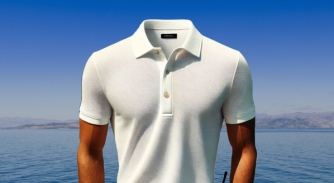
Time for a sea change
Dr Emma Gillett DC, CEO and founder of SeaFeedback, highlights the historic and endemic issues faced by crew and how they can be addressed
Opinion
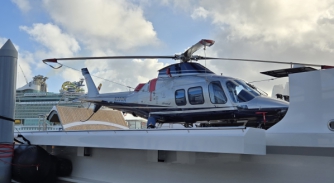
A double standard in maritime and aviation regulation
Felix Christians highlights a growing regulatory disconnect in maritime aviation that he feels deserves serious attention
Opinion
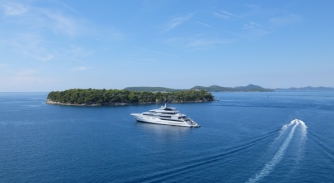
Don’t wait – lead
EU sustainability rules are changing – Water Revolution Foundation outlines what this means for yachting
Business
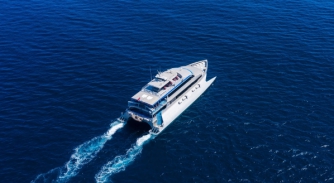
Saudi Arabia announce first ever regulations
The SRSA has issued Saudi Arabia’s first-ever regulation for Saudi yachts as it looks to bolster marine tourism in the region
Crew
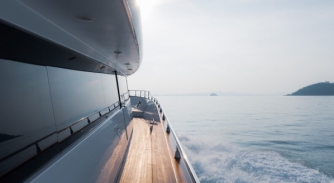
ISWAN publishes recruitment crisis action plan
In the face of rapid change across the industry, ISWAN has outlined specific initiatives to combat the recruitment and retention crisis
Crew
Related news
Time for a sea change
10 months ago
A double standard in maritime and aviation regulation
10 months ago
Don’t wait – lead
11 months ago
Saudi Arabia announce first ever regulations
1 year ago
ISWAN publishes recruitment crisis action plan
2 years ago
NEW: Sign up for
SuperyachtNewsweek!
Get the latest weekly news, in-depth reports, intelligence, and strategic insights, delivered directly from The Superyacht Group's editors and market analysts.
Stay at the forefront of the superyacht industry with SuperyachtNewsweek



